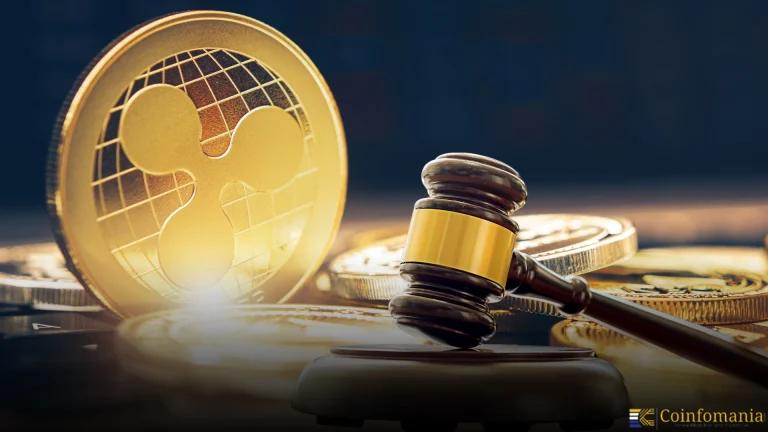Cryptocurrency Regulations in Poland
Poland is creating a balanced regulatory framework for cryptocurrencies. While the country does not ban crypto, it does not recognize it as legal tender either. Private use is allowed and its own regulations are now in line with the European Union’s Markets in Crypto Assets (MiCA) regulation. This is a cautious stance, even if they […]

Poland is creating a balanced regulatory framework for cryptocurrencies. While the country does not ban crypto, it does not recognize it as legal tender either. Private use is allowed and its own regulations are now in line with the European Union’s Markets in Crypto Assets (MiCA) regulation. This is a cautious stance, even if they are supportive: encouraging innovation but at the same time protecting consumers.
Understanding these regulations is vital. The investors must take care of the tax obligations. Register or get licenses to operate legally in businesses. There is enhanced consumer protection and fraud prevention for users due to all these features.
Poland has 3 key authorities on crypto:
- Polish Financial Supervision Authority (PFSA) supervises financial markets and digital assets with MiCA.
- General Inspector of Financial Information (GIFI)—responsible for enforcing anti-money laundering regulations.
- National Revenue Administration – Supervises the registration of the crypto business.
Historical Context
Initially, Poland viewed cryptocurrency with a light touch when it came to regulations. Neither was crypto banned nor was it heavily regulated. Although there was no formal oversight, private use was permitted.
Key milestones include:
- 2018: AML obligations were introduced for crypto businesses under the 5th Anti Money Laundering Directive (5MLD), having firms monitor transactions and identify customers.
- Poland drafted new crypto laws as the EU adopted the MiCA regulation in 2023.
- In 2024–2025 Poland transitioned from registration to licensing of crypto platforms in line with MiCA.
These are the events that begin a shift from a hands-off approach to a defined structure that aims at transparency, compliance and safeguards the interests of consumers.
Regulatory Framework
Poland’s framework includes key areas of crypto oversight.
Key Regulatory Authorities
- PFSA Regulates crypto service providers under MiCA (EU legislations)
- GIFI Monitors AML and CTF compliance
- National Revenue Administration Should maintain the Register of Virtual Currency Activities
Licensing and Registration
Currently, all virtual currency service providers (VCSPs) are required to register with the National Revenue Administration. The operations must be registered within 14 days. MiCA ensures that from January 1, 2026, businesses will require a full PFSA license to conduct all of their operations.
AML and KYC Requirements
Registered VCSPs must:
- Verify user identities
- Monitor transactions
- Report suspicious activities to GIFI
- Appoint AML officers
- Retain records for 5–10 years
From 2024, reporting to GIFI took place on a quarterly basis.
Taxation
Crypto profits are categorized as income from cash capital. Gains have to be declared by individuals and businesses. Tax rates will be different per transaction and per taxpayer.
ICOs and STOs
- Poland categorizes tokens in three kinds: payment, utility, and investment.
- The AML rules apply to utility and payment tokens.
- Security tokens may come under the laws of financial instruments, e.g. the Act on Trading in Financial Instruments and the Act on Commodity Exchanges.
- In MiCA there is also more oversight, particularly for asset-relevant tokens.
Poland’s Crypto Policies
If both parties agree, cryptocurrencies can be used in any private transactions in Poland. Crypto is no legal tender and cannot be used to pay taxes or government fees.
Crypto Mining
Mining is not specifically regulated. It is legal and counters energy, tax and environmental rules like the regular business.
Government Initiatives
Poland supports innovation through:
- Blockchain Startups: Resources and Network for Blockchain Startups (Startup Poland).
- PFSA Regulatory Sandbox: Operating as a controlled environment, fintech solutions, such as crypto services, are allowed to test in the PFSA Regulatory Sandbox to minimize risk.
- Poland: While the blockchain and CBDC applications are being researched, no retail CBDC has launched.
Penalties
Noncompliance with AML, tax, or licensing rules may lead to these failings.
- Financial penalties
- Revocation of licenses or registration
- Legal prosecution for tax evasion or for money laundering
Poland’s Approach to Crypto Innovation
Poland encourages innovation and tightens compliance by means of structured initiatives.
Innovation Sandbox
The fintech startup sandbox provided by the PFSA allows startups to test new tools in a regulated setting. Such crypto services include those that meet certain criteria. It also provides guidance and safe experimentation.
Business Adoption
With the MiCA clarifying their legal responsibilities, the use of crypto will just continue to increase among businesses in Poland. Even if adoption is limited today, it is expected to grow in e-commerce and fintech.
Blockchain Development
Blockchain startups are also welcomed by Government programs like Startup Poland. The interest lies in tokenization, smart contracts and supply chain applications.
Notable Challenges and Issues
Regulatory Inconsistencies
National rules have yet to be aligned with MiCA in Poland. Token classifications and licensing procedures may differ as businesses transition.
Enforcement Difficulties
Crypto’s decentralized structure complicates monitoring. Centralized service providers are the focus of GIFI and PFSA, however, DeFi and anonymous transactions are hard to track.
Public Perception
The public has mixed views. The awareness is increasing, especially with the younger crowd. If past market crashes and unclear rules are preventing old groups from getting in, there is clearly something to be cautious about.
Key Regulators and Future Outlook
Recent Developments
- MiCA entered into force in 2023.
- GIFI began reporting quarterly reports in 2024 in Poland.
- In 2024, draft laws were submitted to shift VCSPs from registration to supervision by PFSA.
Predictions
The Polish MiCA implementation is due by 2026, with tighter AML and licensing rules. More businesses will likely be lured in, and adoption will likely rise if these rules are clear.
Global Implications
Observing Poland complying with MiCA assists in developing a cross-EU crypto framework that will also promote cross-border investment and trade. The standards in Central and Eastern Europe might be influenced.
Conclusion
MiCA’s is a well balanced, structured approach to crypto regulation which Poland is adopting. It’s an innovative solution that simultaneously backs compliance with EU and AML laws. Knowing this is important not only for investors, businesses, and users, but the legal operation and security are difficult without it. The rules evolve; therefore, you will have to be up to date with guidance from PFSA and GIFI.
Frequently Asked Questions (FAQ)
1. Is cryptocurrency legal in Poland?
It is legal for private use but not tender.
2. Can I pay taxes with crypto?
Crypto is not accepted for tax or official payments.
3. Does a crypto business require a license?
Now they must register and receive PFSA licenses by 2026.
4. Is mining allowed in Poland?
It’s legal, and it is done under normal business regulation.
5. How is crypto taxed?
If the transaction is an income from capital, weighted gains are taxed as income from capital.
6. What is MiCA and how does it concern Poland?
According to Lukasz Lisiecki, this is the EU’s crypto regulation, introduced in Poland in its full scope until 2026.
7. Does crypto have AML/KYC rules in Poland?
Businesses have to verify their customers and report activity when they are suspicious of it.
8. What’s the PFSA sandbox?
The program supports fintech companies to test their services in a supervised space.
9. Are ICOs allowed in Poland?
Yes, unless tokens operate as securities, which are subject to financial regulations.
10. How to register a crypto business?
You must apply to the National Revenue Administration within 14 days following launch.
Follow us on Google News
Get the latest crypto insights and updates.
Related Posts

Ripple Highlights Custody as Key to $18.9T Tokenized Assets by 2033
Shweta Chakrawarty
Author

Hong Kong SFC Issues New Custody Rules for Crypto Platforms
Shweta Chakrawarty
Author

South Korea and Vietnam eye $150B trade despite Trump tariff
Shweta Chakrawarty
Author